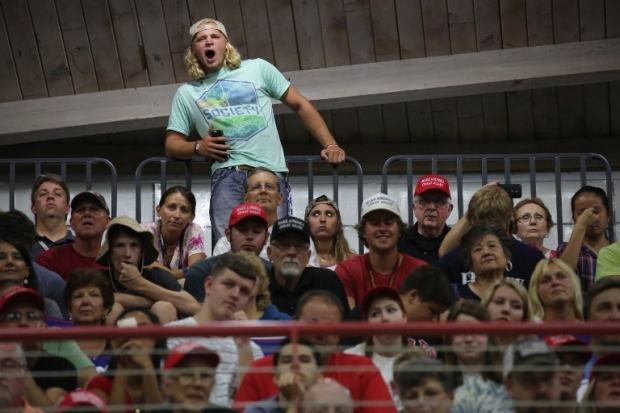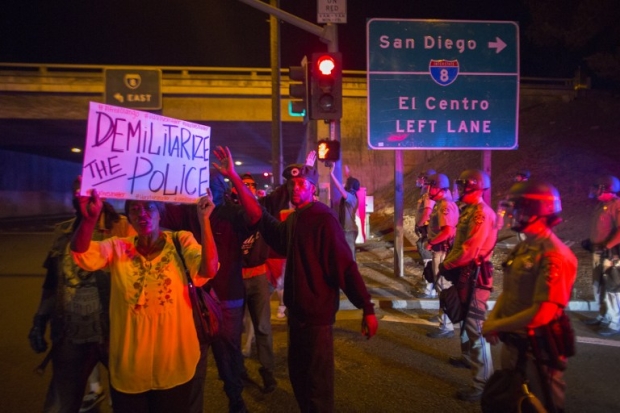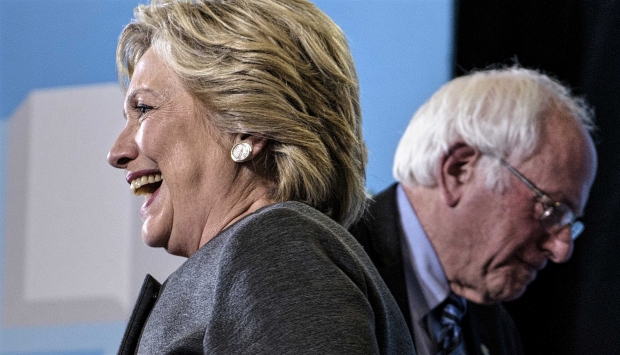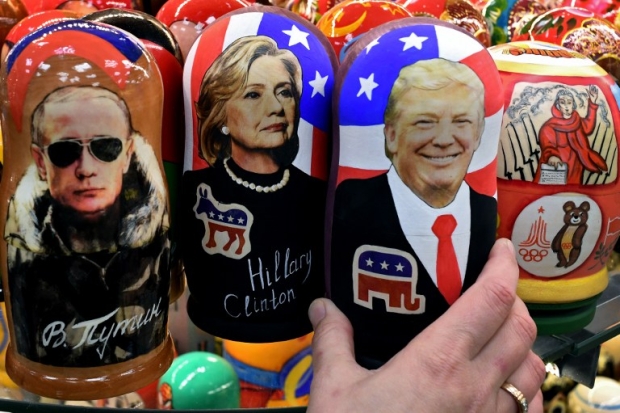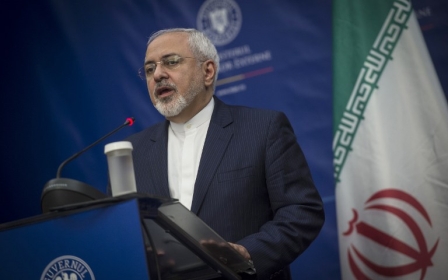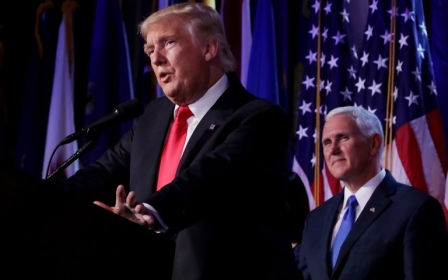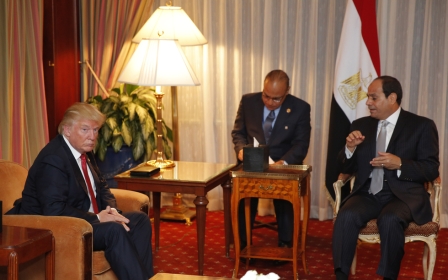The Trump I know: An orange-hued authoritarian haunting my dreams
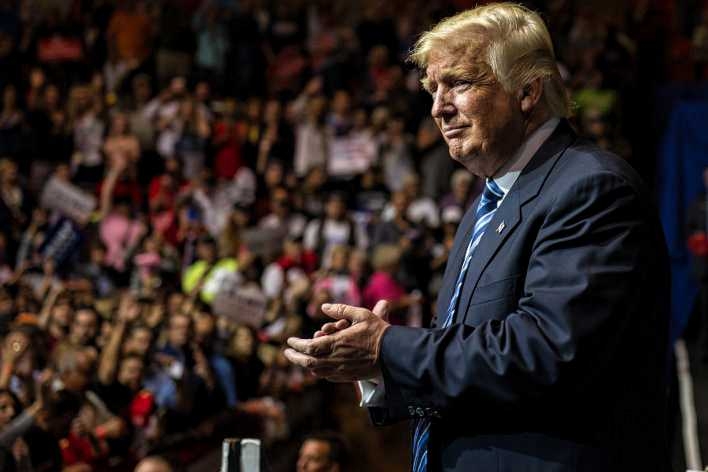
I’ve worked on two one-hour-long Channel 4 documentaries about Donald Trump this year and, during the process of making them, there always comes a point where the orange-toned authoritarian haunts not only my waking life but my dreams; where his words (“We are going to build a great border wall”) and gestures (the finger point and the one where his index and thumb create an “O”) fill my head.
READ: The United States of Trump - how do we explain it to our children?
I’m sure I’m not the only who’s had this happen to them. Now the world is in his hands and a creature made for stalking the dark corners of the mind will soon be stalking the corridors of the White House.
A former Trump staffer suggested he had never really wanted to become the Republican nominee, that he was doing it for the publicity - and then the whole thing snowballed
For the last film, President Trump: Can He Really Win? (both programmes were called that, don’t ask me why), our reporter Matt Frei visited the ravaged and forgotten town of Mingo Junction, Ohio.
We watched as steel made in China trundled along the railway line into an American town that, up until 2009, had a steel plant of its own. In a bar, locals who’d never voted in their life said that they would vote for Trump because he wouldn’t let America be pushed around anymore, because he’d bring the steel back to Mingo.
Outplaying the system
Across the Rust Belt states, the jobs have gone elsewhere. Nothing has replaced them. People who used to make good money doing blue-collar work now find themselves living more precariously.
At rally after rally, Trump talked about the ill effects that free trade deals have had on the American worker. A favourite video of his showed a manager for Carrier, a company that makes air conditioners, telling a factory full of workers in Indiana that the factory was packing up and moving to Mexico.
Or, in one particularly powerful moment at a rally: “I am your voice.” In the land of temporarily embarrassed millionaires, the American Dream still has some power, and so a capitalist king like Trump has told the nation he will be the bully on their side, that they can marvel at him, accept his authority and believe he will do something for them.
The defeat of those less powerful
But those Americans left behind by globalisation weren’t going to hand Trump the White House on their own, and the real estate mogul’s conception of the working people of his country was one rooted in white identity. His campaign played on cultural fears as well as economic ones – though the two often elide.
The presence of both Trump and Hillary Clinton on the ballot paper tell us something about the way democracy has been eroded by extreme wealth
Black, Muslim, Hispanic and other non-white Americans have been marginalised or directly attacked. They have had their own concerns ignored, their own class identity erased. Trump’s view of the world echoes that of the former Ku Klux Klan leader David Duke: “America First”. It is what is already being referred to as the “whitelash”.
In an empire that fears its power is waning, an authoritarian leader has come forward with a simple message: we will “win again”, we will “be happy” again. This victory involves, to some extent, the defeat of people infinitely less powerful than the American state: racial and sexual minorities, migrants and refugees, anyone not prepared to bang the nationalistic drum.
Trump is the loud-mouthed illusion of democracy, propelled into politics by fame and inherited wealth, shouting about doing things for ordinary people when he is in fact consumed by the relationship he has with his own mirror.
Robots and insurgents
For all her seriousness, for all her experience, and for all that her victory would have had a real significance for women across the world, Hillary Clinton has shown time and again that she is not a good campaigning politician; that she is a robotic performer unable to convey a convincing understanding of the problems that concern voters; and that she is too wedded to the political and financial establishment that people are lashing out at.
That she seems to have lost to Trump among college-educated white women is damning indeed, even if it says as much about how a particular type of sexism may still be ingrained in American life as it does about her.
Kellyanne Conway, his campaign manager, told us that her boss was at his best when he played the insurgent, the outsider who had come to destroy the Washington and Wall Street establishments.
Kellyanne Conway, Trump's campaign manager, told us that her boss was at his best when he played the insurgent, the outsider who had come to destroy the Washington and Wall Street establishments
She also told us that the campaign had a secret project called the “undercover Trump voter”, which identified voters who would vote for The Donald but not reveal this to polls. It looks like she may have been on to something.
Abroad, how President Trump approaches Russia will be crucial. The Democrats were wrong to focus on conspiracy theories linking the Republican nominee to all sorts of aspects of the Russian state but Trump does seem to see something of a kindred spirit in Vladimir Putin.
Putin, for his part, probably sees an egomaniacal American he can play like a fiddle. Unease in the countries bordering Russia will be mounting, though it may well be Trump’s insistence that climate change is a hoax that brings us closer to the apocalypse we can all now imagine in clearer detail.
In July this year, I spoke to a former Trump staffer who suggested that he had never really wanted to become the Republican nominee and that he was doing it for the publicity and then the whole thing had sort of just snowballed.
If that’s the case, then this is a PR stunt gone disastrously right. Trump may not follow through on a lot of his more extreme promises, but rhetoric makes a difference and America is as divided now as it has been in a long time.
- Oscar Rickett is a journalist who has written and worked for ITN, VICE, The Guardian, BBC, Africa Confidential and various others.
The views expressed in this article belong to the author and do not necessarily reflect the editorial policy of Middle East Eye.
Photo: Donald Trump, pictured at a rally in Ohio in September 2016 (AFP).
This article is available in French on Middle East Eye French edition.
Stay informed with MEE's newsletters
Sign up to get the latest alerts, insights and analysis, starting with Turkey Unpacked
Middle East Eye delivers independent and unrivalled coverage and analysis of the Middle East, North Africa and beyond. To learn more about republishing this content and the associated fees, please fill out this form. More about MEE can be found here.



